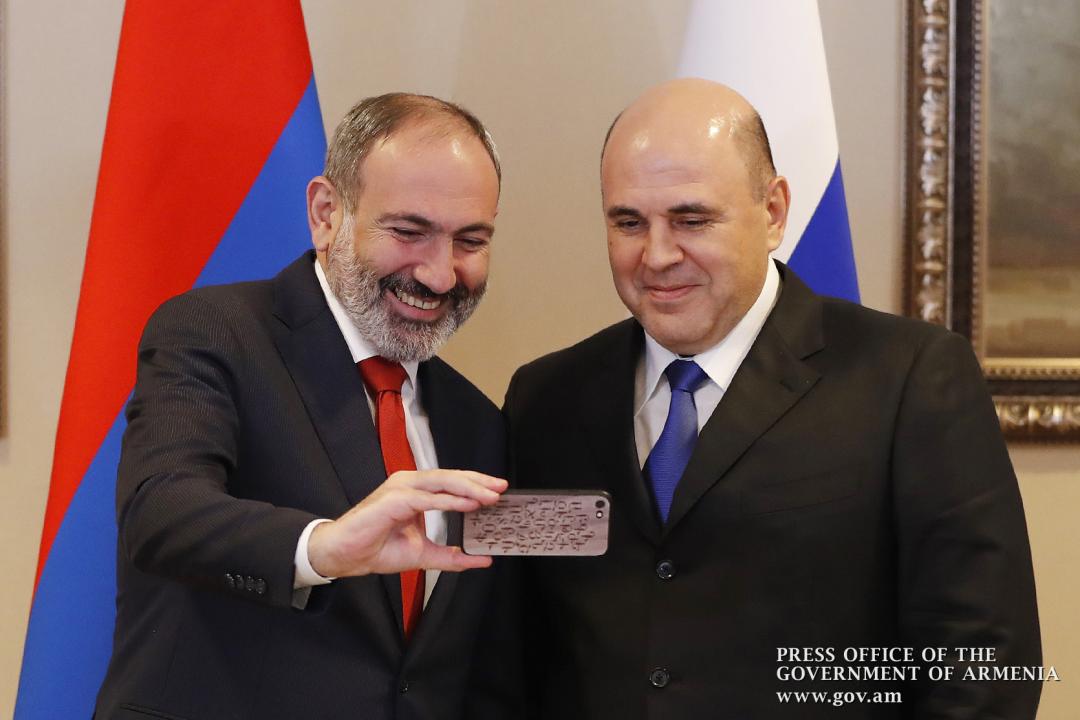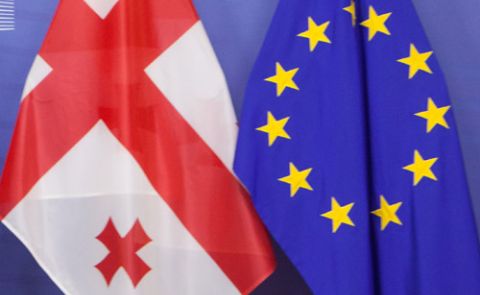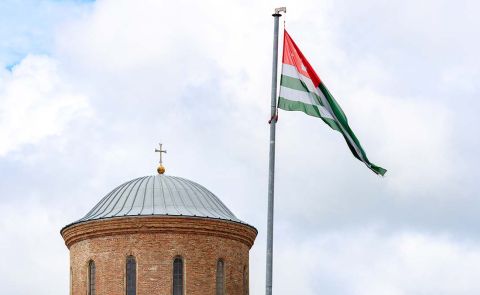
Pashinyan meets Mishustin on the sidelines of the EAEU conference

On 31 January, the Euroasian Economic Union (EAEU) Intergovernmental Council met in Almaty, Kazakhstan, in order to discuss the future directions of the EAEU. Armenian Prime Minister Nikol Pashinyan attended the conference, presenting his country’s priorities within the EAEU.
“We support the priority areas of integration identified by Belarus for the period of its chairmanship. In this regard, I would like to emphasize the importance of eliminating the remaining barriers, exemptions and restrictions that impede the formation of a common economic area,” he said. Pashinyan called for intensified efforts to create a common EAEU energy and transport markets with non-discriminatory approaches in such areas as pricing, tariffs and access to the services of natural monopolies.
“Improving the efficiency of the Eurasian Economic Union’s bodies and developing transport and logistics infrastructure are another area that should be… the focus of our attention,” he added. Pashinyan also said that Armenia actively participates and supports the process of creating and implementing the EAEU’s digital agenda. “We believe that the formation of an ecosystem of digital transport corridors will provide an opportunity to reduce the distance between the consumers of goods and services and the manufacturers and sellers. It will significantly reduce the delivery time, as well as time to search for optimal ways and methods of moving goods, making the market more perfect in this regard,” he concluded.
Meeting with Mishustin
Pashinyan met on the side lines of the conference with the newly appointed Russian Prime Minister Mikhail Mishustin. “Our countries and governments have always enjoyed good, warm relations. Nevertheless, I believe that we have a chance to upgrade our relations, and we will be able do so through joint efforts,” said Mishutin.
He added that Russia is Armenia’s leading foreign economic partner with a share of over 26% of Armenian foreign trade. “About 2.2 thousand Russian enterprises are currently operating in your country. Bilateral trade rose by 11% in 2018 to nearly 2 billion U.S. dollars. The growth continued last year, increasing by about 17.6% in January-November. This is good, we need to build on this positive trend and look for new areas for cooperation. I hope today we will be able to discuss the entire range of bilateral relations,” he emphasized.
Pashinyan said that the trade turnover between the two countries reached the mark of $2 billion in 2019, and that this good dynamic will continue in 2020. “Last year we managed to create good economic momentum. The figures were published earlier today: economic growth was closer to 8%; this is also due to our economic cooperation with the Russian Federation and within the framework of the Eurasian Economic Union. I hope your government will support the economic dynamics that we have in Armenia today,” he stated.
During the meeting, the two prime ministers discussed a wide range of issues related to the Armenian-Russian economic relations. In particular, they touched upon the expansion of trade and economic ties, the possibility of implementing joint investment projects in the fields of infrastructure, energy, industry, information technology and microelectronics. Mishustin emphasized that the Russian side is interested in discussing the prospects for implementing specific programs in the field of information technology.
Armenia's Deputy Prime Minister Mher Grigoryan revealed that the price of Russian gas was also on the agenda of discussions. He stated that seeking a long-term natural gas price might appear to be unprofitable for Armenia. “If we agree on a gas tariff for a 10 year period, the price can change over this period, as it is not always predictable. Our goal is to have long-term stable prices. We are striving to establish common fixed prices in the EAEU,” he said.
Grigoryan said earlier that the price of Russian gas imported to Armenia will remain unchanged during 2020, but discussions with Gazprom-Armenia regarding domestic price were ongoing (Caucasus Watch reported).
See Also


BP Strengthens Presence in Azerbaijan’s Offshore Energy Sector

Netanyahu’s Letter to Aliyev: Mutual Trust, Solidarity Following Hamas Attacks, Facilitating Dialogue Between Israel and Türkiye

Azerbaijan Expands JF-17 Thunder Fighter Jet Order from 16 to 40 Units

EU Commissioner and NATO PA Warn Georgia Over Democratic Decline Amid Accession Challenges

